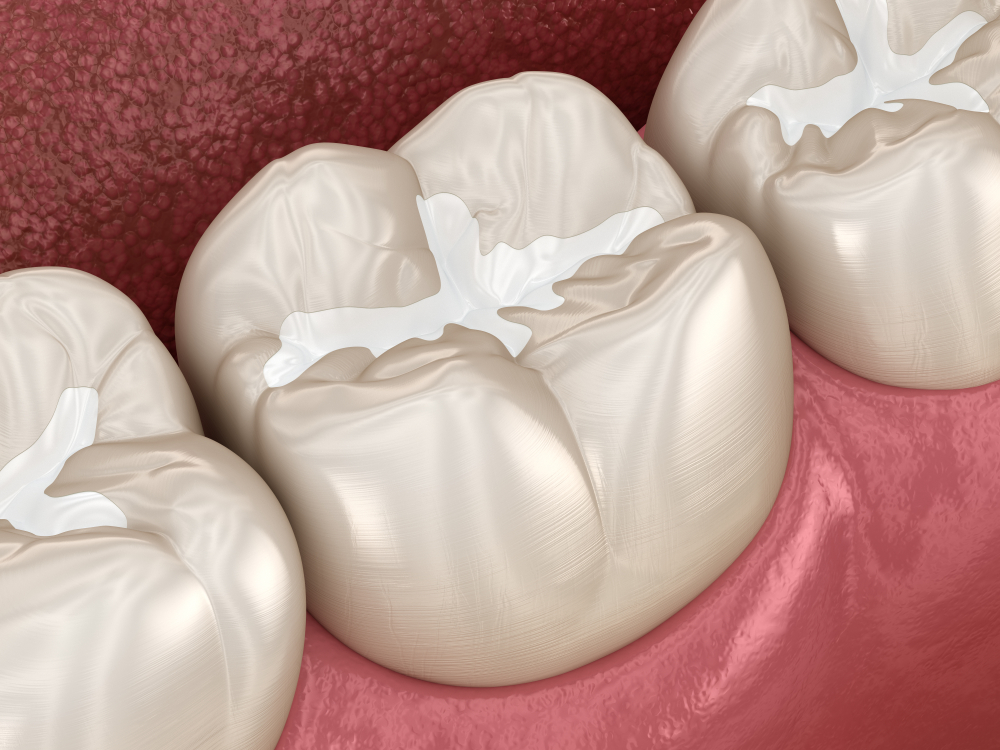
Your dentist may have mentioned to you putting dental sealants on your teeth. Without an explanation, it may be unclear what is going on. To break down what a dental sealant is, it is a coating, usually placed on the surface of the tooth where chewing takes place. This coating is typically made of a plastic material to help permanent teeth from decay. This is a process dentists will have patients go through if cavities have been an issue. When a dentist chooses to apply a dental sealant, it is to protect the tooth further than a filling could, to ensure the tooth is healthy.
Sealants are placed on teeth to cover the natural grooves of a tooth. These grooves in teeth hold bacteria, plaque and food debris. With a covering over these grooves, it is more difficult for decay to begin, if at all. The dental sealant provides a smooth surface for food, so nothing is getting lodged in between crevices you may not even notice. While dental sealants go on adult teeth, they are not typical for adults to get. Sealants are commonly used on teenagers who struggle with cleaning their teeth well, and are more susceptible to getting cavities.
Dental sealants last for a number of years, and can be replaced if necessary. Sealants are clear or white, to give a natural look to the tooth. It is normal for people to not notice sealants on their teeth, but you know they are providing good protection.
It is also common that a dentist would not apply sealants to all of the teeth. Dental sealants are normally used only for molars where there are flat sections where you would bite food.
Even with sealants, you are supposed to brush your teeth and floss as you regularly would. It is important to maintain good oral hygiene to ensure you do not create any cavities.
If you believe you would benefit from dental sealant, consult with your dentist. Sealant may be a procedure you did not know existed but would value from. Contact your dentist to schedule a dental sealant appointment.


